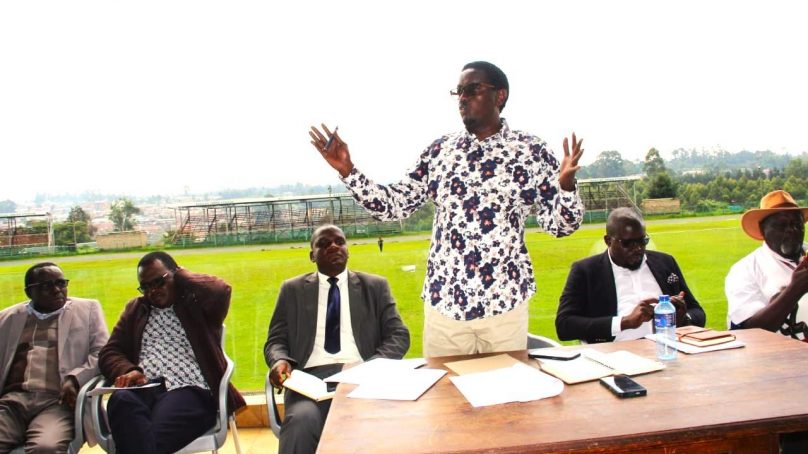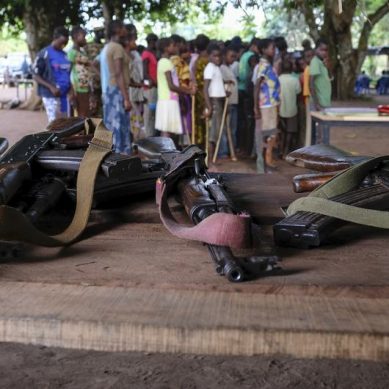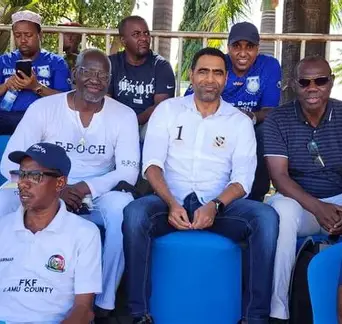
Kenya has unveiled a comprehensive initiative through the National Policy on Ethnic Minorities and Marginalised Communities (2025-2035) to tackle long-standing inequalities and empower historically excluded groups.
The plans is expected to enable people from the communities to access equitable opportunities and participate fully in national development.
Speaking during a public participation forum held at Kiprugut Chumo Stadium in Kericho Town, the Director of the Marginalised Affairs Unit Abdi Kahia said the government is committed to ending systemic exclusion and ensuring that every Kenyan, regardless of background or origin, benefits from national progress.
The meeting brought together representatives of the Tallai, Ogiek, Nubian and Nyarwanda communities, alongside government officials and civil society actors to deliberate on the proposed policy, which promotes unity through inclusion, equitable resource allocation and recognition of cultural diversity.
Mr Kahia explained that the initiative is anchored on constitutional principles enshrined in Articles 27, 43 and 56, which safeguard equality, social rights and protection of minorities. He said the policy translates these provisions into concrete actions at both national and county levels.
He noted that the new framework introduces affirmative action programmes and targeted interventions to address disparities in education, healthcare, political representation and access to economic resources for minority communities across the country.
“The Government of Kenya is firmly focused on building a country where every community, no matter how small or remote, can benefit from equal opportunities. Inclusivity remains central to the Kenya Kwanza administration’s social transformation agenda,” Kahia said.
Anthony Otieno from the Kenya Law Reform Commission, who led the session on the policy and the forthcoming Ethnic Minorities and Marginalised Communities Bill, 2025, said the government seeks to establish a coordinated legal and institutional structure to address historical injustices and systemic exclusion.
He observed that Kenya’s history of marginalisation can be traced to colonial-era land policies and governance systems that dispossessed indigenous communities, limited their economic participation, and denied them access to essential services such as education and healthcare.
Otieno explained that the new policy will prioritise affirmative action, recognise land and natural resource rights, safeguard cultural heritage, and strengthen representation in decision-making processes.
He said the initiative also focuses on socio-economic inclusion by implementing targeted programmes in employment, entrepreneurship and education to uplift communities that have long been left behind.
Participants from the Tallai, Ogiek, Nubian and Nyarwanda communities shared their experiences and highlighted challenges such as limited access to quality education, inadequate healthcare, poor infrastructure and persistent land insecurity that continue to hinder their social and economic progress.
They also cited lack of effective political representation, delays in development funding for marginalised regions, and erosion of cultural identities due to historical neglect and systemic discrimination.
In response, Otieno assured participants that the new policy and the proposed law will create mechanisms to guarantee recognition, inclusion and participation of these communities in all spheres of national life. He said the implementation will be closely monitored to ensure accountability and measurable impact.
He further noted that special attention will be given to women, youth, persons with disabilities and the elderly within marginalised groups, to ensure that multiple layers of vulnerability are addressed through intersectional inclusion measures.
“Beyond social welfare, this policy integrates environmental resilience and climate adaptation in regions heavily affected by poverty and ecological degradation, ensuring that development is both inclusive and sustainable,” Otieno said.
Several community leaders expressed optimism that the measures will mark a turning point for minority groups that have long been excluded from the national development framework. They lauded the government’s efforts to create a policy that acknowledges their struggles and provides a framework for empowerment, equality, and social justice.
The Ethnic Minorities and Marginalised Communities Bill, 2025, is a proposed Act of Parliament developed to give effect to Articles 7, 11, 27, 44, 56 and 232 of the Constitution of Kenya.
It provides a comprehensive legal mechanism for recognising, including and enabling the participation of ethnic minorities and marginalised communities in the nation’s social, economic, and political life.
- A Tell Media / KNA rport / By Dominic Cheres and Kibe Mburu








